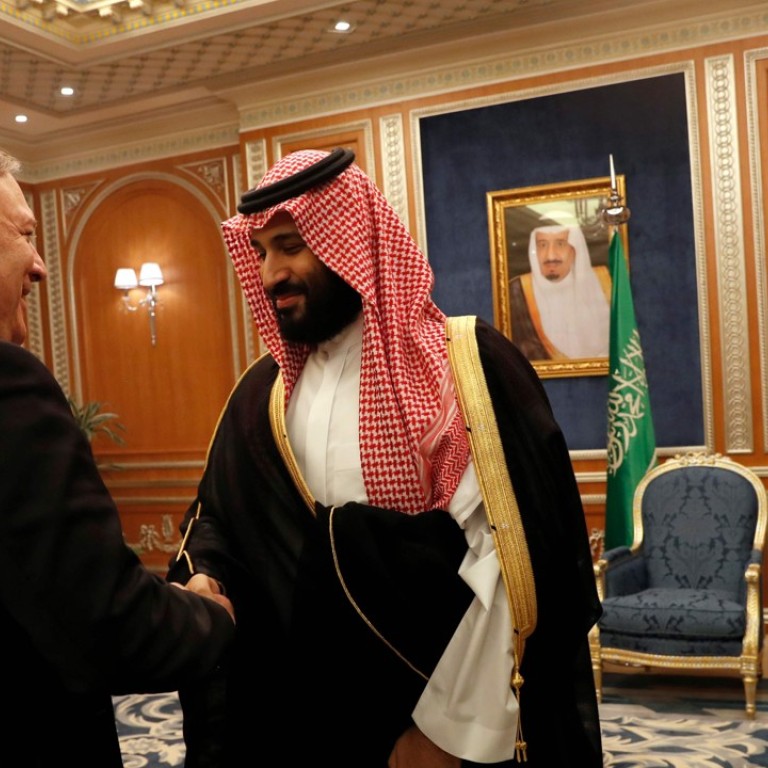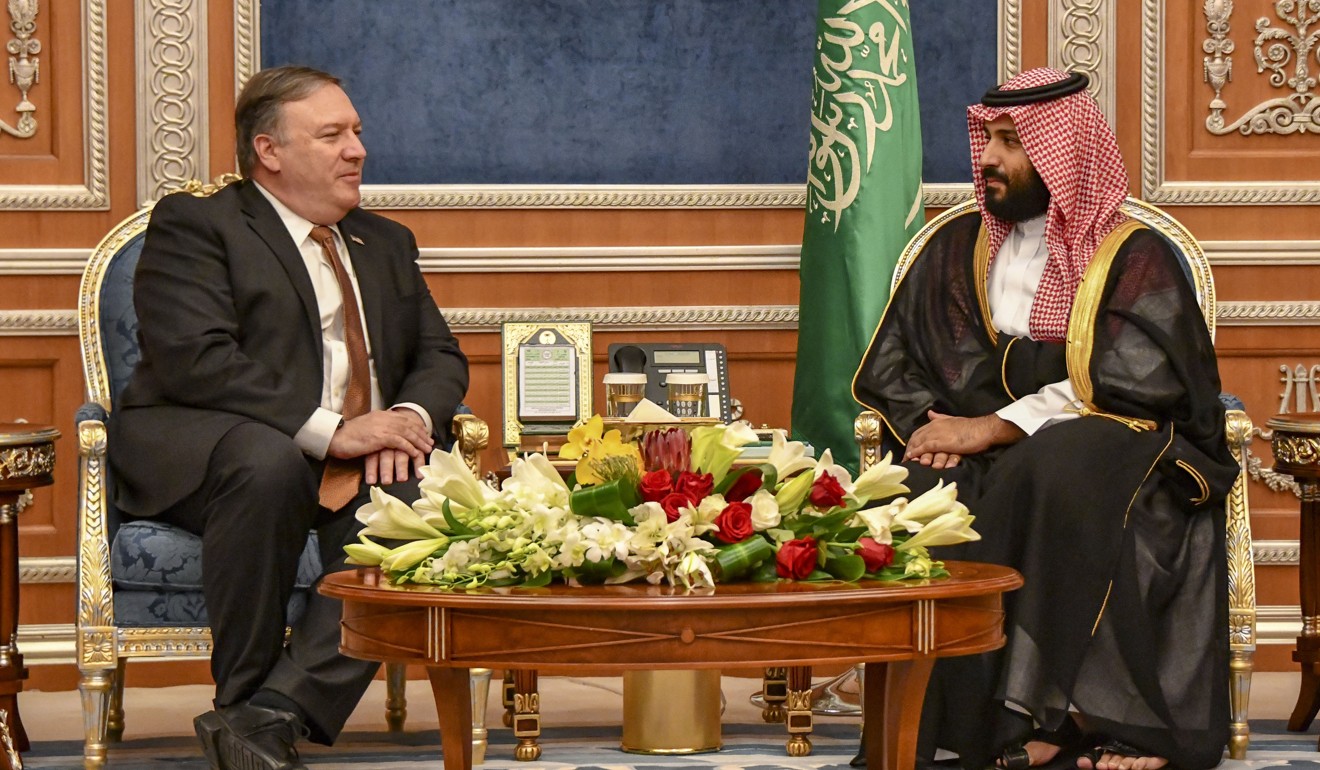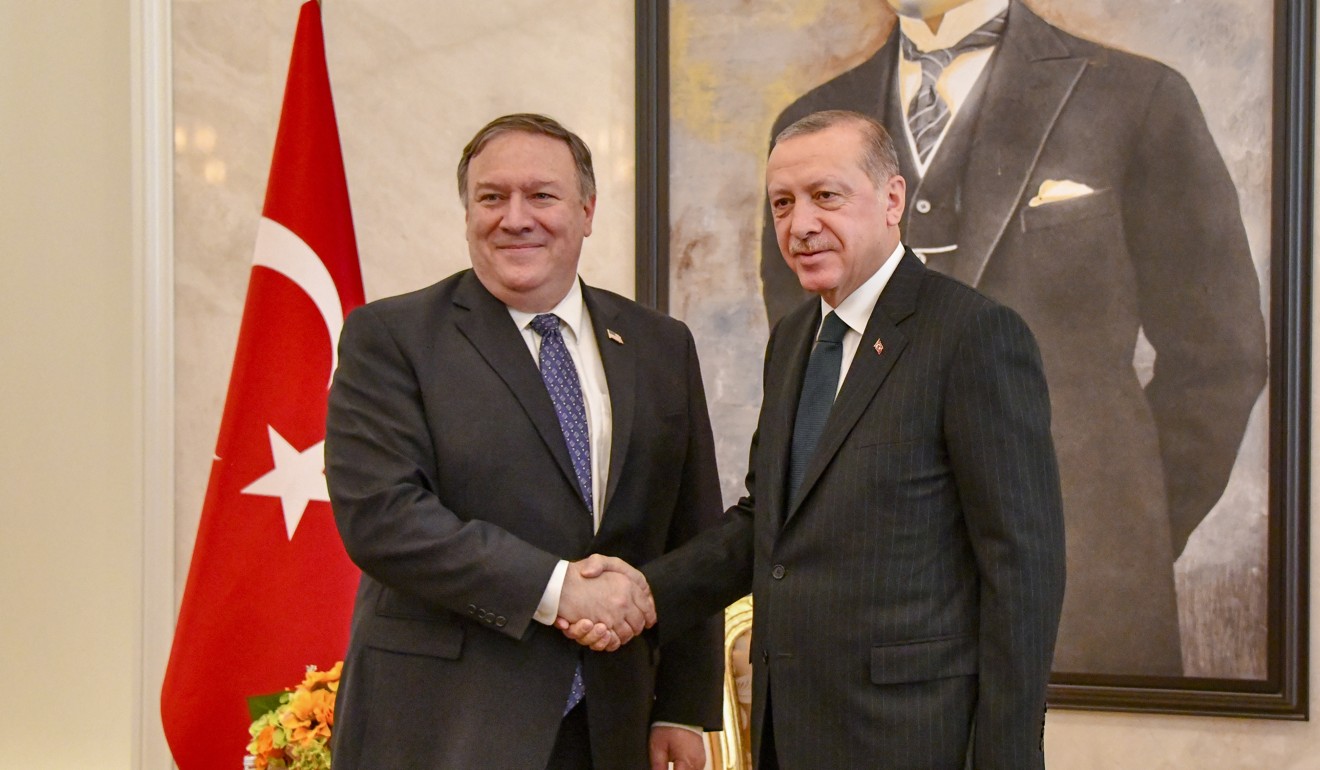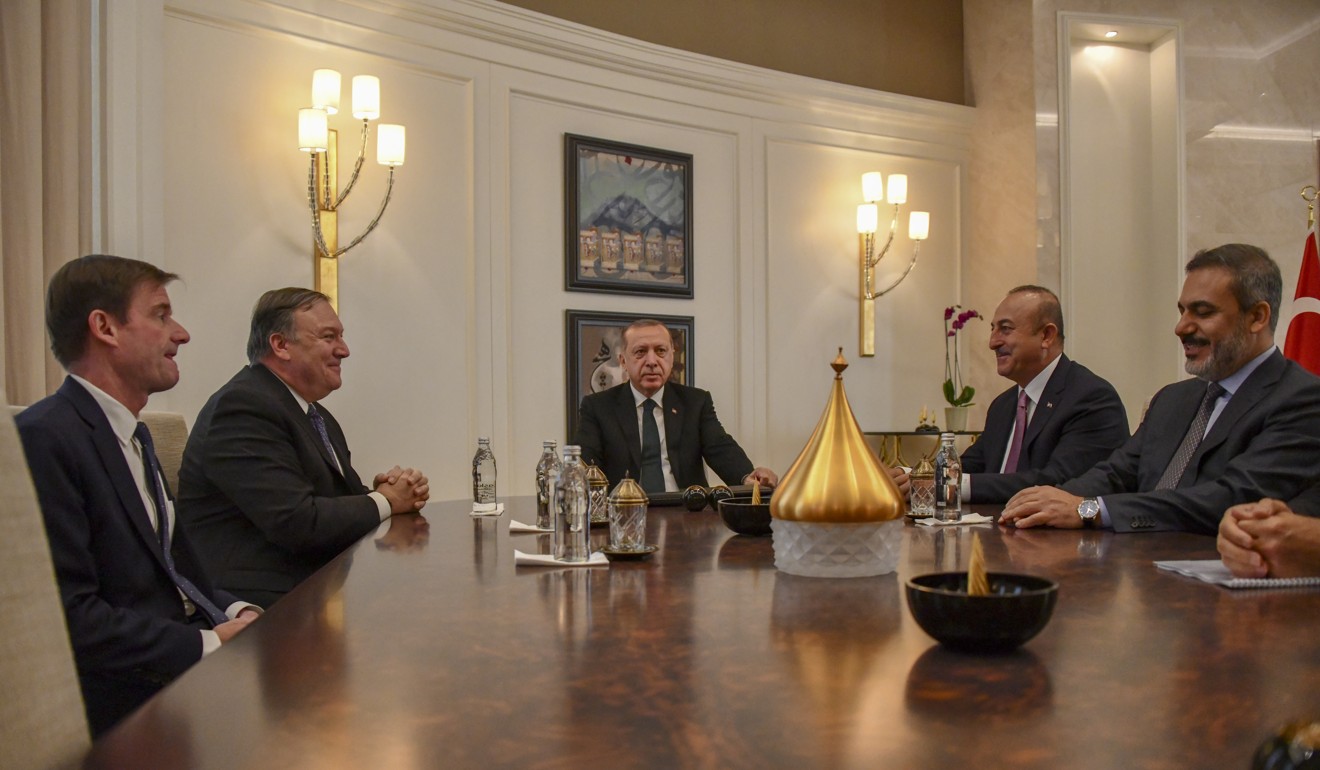
Why US Secretary of State Mike Pompeo’s Saudi Arabia visit over missing journalist was a diplomatic mission impossible
• President Trump sent Pompeo to stress the severity of the case of Jamal Khashoggi, who is thought to be dead
• Analysts say he was too deferential and sent the message that America would help the kingdom emerge from the crisis
Almost six months ago, Secretary of State Mike Pompeo set out to revive the State Department’s “swagger”. But his rebranding efforts may have been undercut by his emergency visit to Saudi Arabia this week to discuss the disappearance and possible death of journalist Jamal Khashoggi.
President Donald Trump dispatched Pompeo to stress the importance the United States attaches to the case, but the diplomat left any blunt words for the Saudis to private conversations.
In his brief public appearances with the Saudi leaders, Pompeo was smiling and courteous, showing no signs of moral affront over what may have happened to the journalist, a contributing columnist to The Washington Post who has not been seen since he visited the Saudi Consulate in Istanbul on October 2 to obtain a document. Turkish officials have said they believe Khashoggi was killed and dismembered by a Saudi team linked to Crown Prince Mohammed bin Salman, commonly known as MBS, whom Pompeo met twice in Riyadh, the Saudi capital.
Former diplomats and foreign policy experts say they did not expect Pompeo to use a public platform to express moral outrage over Khashoggi’s fate. To do so could have undermined his ability to deliver a stern message in private.

“The smiles are because when you go into a meeting, if you want to be tough you want to be listened to,” said Ronald Neumann, president of the American Academy of Diplomacy who spent more than three decades as a diplomat, most of it in the Middle East. “You’re not there to do a morality lecture, no matter how much you believe it. You’re there to say, ‘you’re in deep trouble and you have to get out’.”
But some analysts said Pompeo was too deferential to the Saudi leadership in public, inadvertently sending a message that the United States is willing to help the kingdom emerge from the crisis unscathed.
“I personally think he came across as obsequious,” said Perry Cammack, a fellow in the Middle East Programme at the Carnegie Endowment. “Things he said, as well as his body language in Riyadh, struck me as, he’s doing everything he can to help MBS get out of a pickle that he’s in.”
In being ordered to Saudi Arabia by Trump, Pompeo was put in a position not of his making, with limits on his ability to send a sterner public message. The Trump administration has built much of its Middle East policy around Saudi Arabia’s help in countering Iran and working with Israel. US business interests in Saudi Arabia are substantial and the country is considered a valuable counterterrorism partner today, despite its past support of madrassas, or religious schools that inspired a generation of militants.
The Khashoggi case has thrown a kink into the administration’s strategic plans, even though few expect the US-Saudi relationship to be permanently damaged even if the royal family is found to be involved in the journalist’s disappearance.
Trump’s public stance on the incident has changed as the days passed with no sign of the writer, moving from saying “nobody knows” what happened to vowing a “very severe” US response if Saudi Arabia is found to have murdered him. The president has said that Saudi leaders deny knowledge or involvement and has suggested, at least in public, that he finds the denials sincere.
Trump has not called for or appeared to support an independent US investigation, or an international one under the auspices of the United Nations.
That was part of the baggage Pompeo carried with him to the meeting.
“I do have an appreciation for the complexity of the situation he’s in,” balancing a public message that meshes with Trump’s and the private one he delivered, said Dana Shell Smith, a former US ambassador to Qatar.

“Has he enhanced his public standing? No,” said Smith, who is now a consultant on trade and business in the Middle East. “He did not have to have a photo op with MBS. He did not have to have a smiling photo op with MBS. That was done for the sake of his standing with the audience of one.”
Pompeo is still building his legacy as secretary of state, and some analysts consider his trip to Riyadh an unfair assessment of his reputation.
You’re not going to see Mike Pompeo, or any secretary of state who works for Donald Trump … respond any differently
Nick Burns, a former undersecretary of state for political affairs who now teaches diplomacy at the Harvard Kennedy School of Government, said Pompeo has developed a reputation for toughness and effectiveness in helping the State Department rebound from a year of retrenchment under his predecessor, Rex Tillerson. It was unlikely he could have got a mea culpa from the Saudis, who have been a US ally for seven decades and are a linchpin of Washington’s current Middle East strategy.
“However, I do think the optics of smiles in public were wrong,” Burns added.
“Because the Saudi government very likely ordered the murder of Jamal Khashoggi. And that is a serious crime. He’s a permanent resident of the United States. We owe him and his family protection. We owe him that we will argue for justice. This was a time to be tough with the Saudis, tough publicly.”
Aaron David Miller, a former diplomat who advised six secretaries of state, said James Baker, the secretary of state under president George H.W. Bush, slammed down notebooks and threatened to walk out and not come back in his dealings with Israelis, Palestinians and Syrians. Those were in private meetings.
“You’re not going to see Mike Pompeo, or any secretary of state who works for Donald Trump on this particular issue, respond any differently than Mike Pompeo did,” Miller said. “This is not on Mike Pompeo. It’s on a president who, for any number of reasons, has determined that the value of maintaining ties with the Saudis is something of immense importance to the national security interests of the United States. And who will go to great lengths, by acquiescent support or silence, to give the Saudis the benefit of the doubt.”

Despite the limitations, the Trump administration appears to be sending signals that it will grant Saudi Arabia more time to deal with the Khashoggi case.
Treasury Secretary Steven Mnuchin announced he will not attend an international investors conference in Riyadh next week, pointedly noting that he decided not to go after meeting with Trump and Pompeo. The linkage seemed intended to send the Saudis the message that they must address the Khashoggi case more openly and honestly.
After discussing his diplomatic mission with Trump on Thursday morning, Pompeo told reporters he had advised the president to give the Saudis “a few more days” to complete their investigation.
“At which point we can make a decision about how the United States should respond to the issues surrounding Mr. Khashoggi,” Pompeo said.
saudi-pompeo-1stld-writethru

